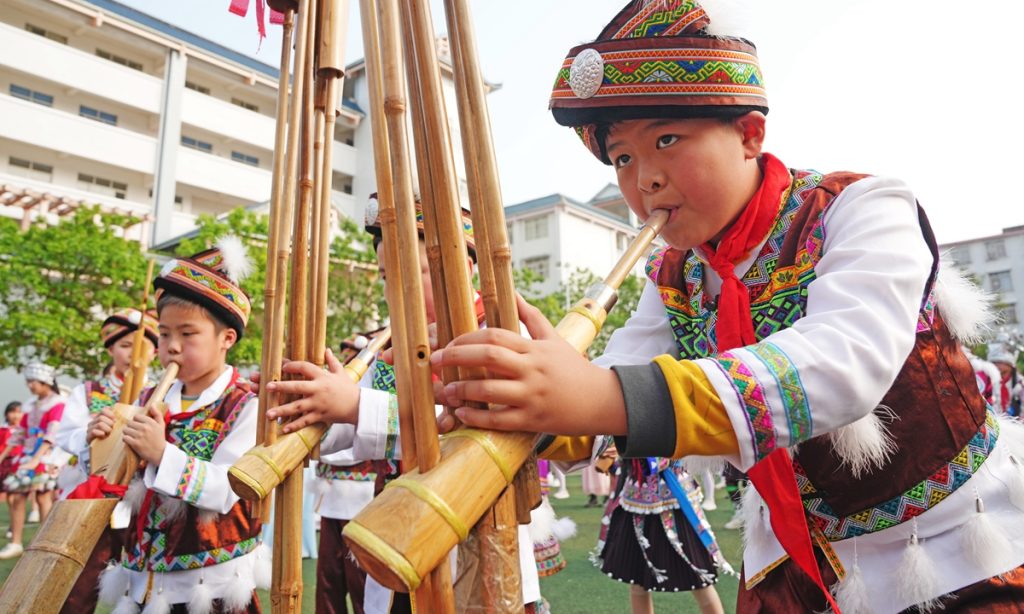Nationwide celebrations of ethnic festival revive traditional folk customs with unity, cultural heritage

Over the past few days, many ethnic communities across China have been engaging in vibrant celebrations of the March 3 Festival, also known as the Shangsi Festival. Celebrated across China, the festival is one of the traditional Chinese festivals with roots in ancient sacrificial rituals.
Held on the third day of the third month of the traditional Chinese calendar, it falls on Thursday this year. Over time, the festival has evolved into a grand occasion integrating sacrifices, entertainment, and social activities.
During this festival, various regions engage in colorful customs, ranging from traditional sacrificial ceremonies to diverse folk entertainments. Different ethnic groups bring their unique customs and traditions to the tapestry of this nationwide celebration.
In South China's Guangxi Zhuang Autonomous Region, the festival is akin to the Spring Festival, teeming with traditional activities like throwing embroidered balls, singing mountain songs and making merry over drinks. The region this year is also enjoying a four-day holiday starting from Thursday, the regional government announced in March.
It is an important occasion for singing in an antiphonal (call-and-answer) style to find love, to worship one's ancestors and pray for a good harvest. It is observed by many of the region's ethnic groups including the Zhuang, Yao, Miao, Dong and Mulam.
Listed as a national intangible cultural heritage, the March 3 Festival usually ushers in a tourist high season with its showcasing of colorful ethnic diversity.
Many schools in Guangxi held different celebrations for children to experience the traditional rituals and games of the festival.
On Tuesday, the Rong'an County Experimental Primary School in Liuzhou city of Guangxi held an event that featured bamboo pole dancing, ethnic unity dances, and mountain song duets, enriching the students' and teachers' experience of ethnic culture.
In the Liwan district in Guangzhou, South China's Guangdong Province, the Renwei ancestral temple hosted events on Thursday in which villagers participated in parades, prayer ceremonies, lion dances, and community banquets, continuing the mutual support and traditional folk culture among local clans. Participants in traditional Chinese costumes, including Hanfu, roamed through the square, offering fresh flowers and herbs to passersby, reenacting ancient purification rituals.
The She ethnic group's March 3 Festival is among the most representative cultural events, which is also included in the national list of intangible cultural heritage. A recent celebration in East China's Fujian Province cleverly integrated ethnic unity celebrations with cultural tourism and trade.
On Wednesday evening, a themed gala performance took place at the Wufu Cultural Park in Fuan city in Fujian, featuring dancers in traditional attire from various ethnic groups. They moved gracefully to the lively rhythm, harmoniously presenting the captivating scene of a Chinese phoenix spreading its wings and dancing elegantly.